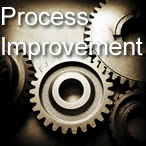Sales Manager or Performance Supervisor?
Over the years I have seen all too many sales managers focussed only on results and not what is necessary to achieve the results. The management component of a sales manager’s role is about the planning and control of work processes, but a good sales manager knows that supervision – directing their team towards success – will deliver not just better results for the team and the individual sales person, but greater job satisfaction for themselves.
Supervising the performance of your team is not just about measuring performance against targets (the results), but helping the individual salesperson understand what will help them be successful and guiding them to undertake these actions and develop the skills needed to achieve success. And this will be different for each individual. Once thorough planning has been done and your team know the sales strategy and objectives, they need to have a comprehensive action plan and the skills needed to guide them through the activities needed to achieve their goals.
“The only man I know who behaves sensibly is my tailor; he takes my measurements anew each time he sees me. The rest go with their old measurements and expect me to fit in”
George Bernard Shaw
As a supervisor of your sales team, you need to understand that the performance of each individual includes a complex set of variables. Variables that include ‘hard’ abilities such as job knowledge and sales skills; an ‘soft’ abilities including social and emotional intelligence, empathy and other behaviours. Attempting to manage only the outcome of an individuals efforts and not supervise and guide their efforts to achieve these results show a poor understanding of the real role of a sales manager.
Like so many areas of a sales managers responsibility, developing skills as a supervisor is as much about an individuals personality and natural traits as it is about skills learned and developed. However, there are several characteristics of effective supervisors, which, if adopted will help you guide your team to deliver what is expected of them, when it is required.
Effective supervisors:
- Establish a culture of high performance. If this becomes the expectation of every team member, minimal intervention is required as each individual will be striving to achieve their goals.
- Clearly define what success looks like and how it can be achieved. Helping staff understand their individual and the team’s Key Performance Areas (KPA) enables you to monitor performance and help your team members take steps to achieve their goals should they be missing these key areas that influence performance. KPA’s differ from Key Performance Indicators (KPI) in that KPA’s define the actions and activities required, not the outcome.
- Establish clear and practical KPI’s, the metrics used to measure actual results in each KPA. Setting KPIs that are measured throughout the year and not just at the end of a sales period allow you objectively track activity and performance and help you know when and where to take remedial action to help the salesperson stay or get back on track.
- Have clear roles and responsibilities defined and agreed and ensure everyone understands what is expected of them.
- Develop individual performance and development plans where KPAs and KPIs are agreed and the areas of improvement required and how to achieve them are clearly understood.
- Act quickly to address non-performance, wearing the ‘managers’ or ‘coaches’ hat as appropriate.
Good sales managers know their role requires them to adapt to many and varied situations. Being a good supervisor is just another of the functions required of the professional sales manager. It is an educative and supportive function facilitating skill and knowledge acquisition and providing evidence-based intervention when needed to help the team and individual achieve their goals.
This article was previously posted on Linked In.
















